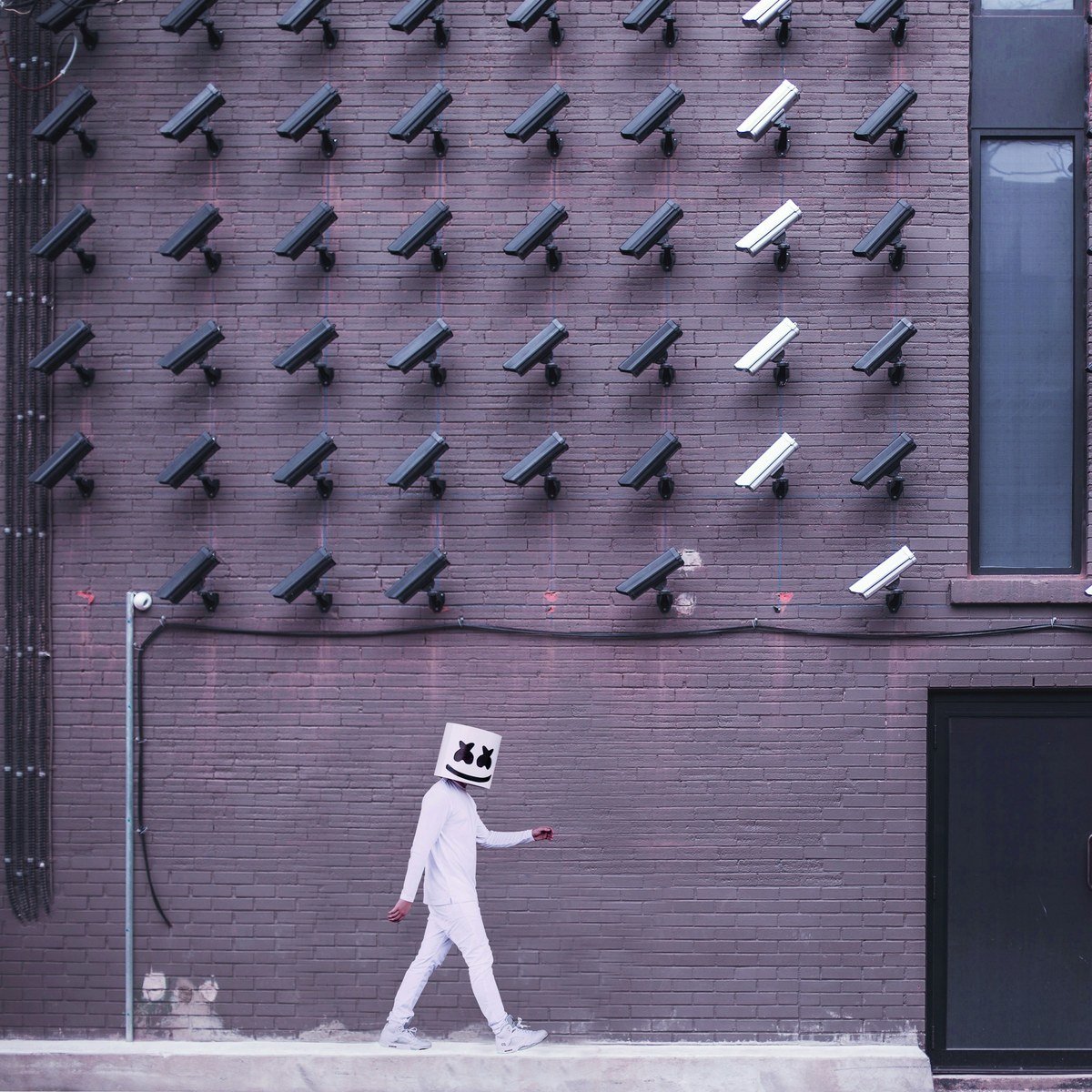"There were dozens of porn groups in their subscriptions." How and why recruiters check candidates' social media
We asked HR experts.
We asked HR experts.

«Does a candidate’s public life matter to companies? There’s no definitive answer. Some care deeply, while others believe that as long as someone is professionally competent, whatever they post on their personal pages is their own business.»
Generally, a company’s attitude toward candidates' personal-public life depends on several factors, such as:
Industry sector. In some fields, candidate screening goes beyond interviews to include security checks, database searches (for debts, criminal records, etc.). This primarily applies to companies developing banking and financial software, iGaming businesses, government or government-adjacent organizations that develop military or security software, and companies that serve such clients.
Company’s public profile. If a company is public-facing and carefully maintains its reputation (for example, a company that has made anti-discrimination part of its marketing strategy), it logically expects employees to demonstrate values in social media that align with the company’s values. I know cases where employees were fired for racist or sexist statements.
Internal policies and company values. A company might be small and not public-facing, but its founders might hold certain views and prefer to work with like-minded people.
Political factors. Since the pandemic, we’ve seen the job market shift toward remote work and relocation of both companies and candidates. If previously people mostly worked in their own locations (except freelancers), now the job market appears more global. People from different locations with different views actively interact during hiring and on the same projects. Some companies don’t specifically regulate these aspects or ban discussion of certain topics at work, but many try to avoid conflicts by not bringing people with diametrically opposed views into their teams. In this context, social media content that might offend others can work against you.
Position the candidate is being considered for. Will this role be public-facing? Will the candidate have access to trade secrets or company finances? Is it an entry-level or top management position? The higher the position, the more public-facing it is, the greater the access—the more likely you’ll be scrutinized based on your social media content.
What will recruitment specialists look at first? In reality, 90% of the time nobody digs too deep.
Most likely, at some stage in the hiring process (closer to the offer), a recruiter or hiring manager will browse your social media—Facebook, Instagram, TikTok—and review your LinkedIn posts and comments (these are easily visible in your «activity» section). If nothing raises red flags on a surface level, they’ll likely stop there.
What might attract attention and cause a company to examine your public presence more carefully?
Some might rightly object: So what—should I avoid using social media altogether? And anyway—it’s my personal life! I agree with this to some extent (I sincerely object to teachers being fired for photos in swimwear, for example). But I can understand companies too.
We live in times when «cancel culture» can happen quickly without much investigation, including companies being targeted for inappropriate employee behavior. Essentially, employers now bear responsibility not only for their employees' work but also for their moral conduct (and if unacceptable content is posted from an account that lists the workplace—that’s the worst possible scenario).
A recent example involves a fitness instructor who posted hostile content on Threads effectively endorsing violence against women. The post quickly spread across social media, users rapidly identified the fitness club where he worked, and bombarded its Google ratings. The connection between «this person works at this place» was made instantaneously. As a result, the club had to issue a statement that they don’t support their employee’s views, and the man was fired.
No one wants to face such situations. That’s why many companies try to research candidates' public lives before hiring them to reduce risks.
What would I recommend if you can’t resist posting controversial content? Separate your accounts. Create showcase accounts on major social networks for professional content, nice photos, etc. And create a separate space for your angry alter ego (I’m probably going to get flak from everyone for this advice).

HRD Evgenia* believes that «recruiters typically don’t examine social media profiles of candidates for ordinary positions.»
«Especially when you’re handling 10+ vacancies, each with a fairly wide funnel—you simply don’t have resources to review everything.
But if a candidate is applying for a key position, the recruiter might search their social media.
Of course, some will say this violates personal boundaries and shouldn’t be done. But let’s be honest: any employer wants employees
who are easy to manage. And for that, among other factors, you need a healthy corporate culture.
As many know, culture is shaped by people. Toxic employees, gossipmongers, and people who don’t align with company values disrupt team harmony. In a healthy workplace, they’ll be directly told that their behavior is problematic—and they’ll either adapt by changing or leave.
But if the team already has minor 'flaws,' adding an incompatible person can create a ticking time bomb. Managing such an employee, smoothing out «rough edges,» and resolving conflicts requires much more time and energy from a manager. This automatically reduces their engagement with other tasks.
So yes, recruiters often check the social media profiles of candidates for key positions, observing what they write about former colleagues and employers, examining how they showcase expertise, what values they share, and how they interact with commenters. Basically, they try to determine whether a specific person is a good fit. And if not, the candidate will never learn the real reason for rejection.
I know companies that deliberately avoid hiring people who actively develop their social accounts, as well as public figures—such as those invited as speakers at conferences. They believe such candidates might «air dirty laundry» or be excessively focused on their brand/page rather than their work.
However, there’s a flip side: some well-known personalities actually attract people: clients, candidates, and so on. For some job seekers, working with a «star» is a definite bonus in terms of experience, resume enhancement, and knowledge they’ll gain.
CEO and founder of international IT recruitment agency Lucky Hunter Tatiana Melnichuk agrees with Evgenia that ordinary candidates' social media «very rarely» becomes subject to scrutiny.
«Personal social media is called „personal“ for a reason—everyone has a right to their public life unrelated to work. It’s different for VP or C-level candidates. In that case, you should definitely check their social media, because such candidates subsequently become company representatives, its 'face.'»
Although sometimes companies actively adhere to certain political views—and it’s important to them that an employee either remains neutral or shares their position. Then they might check a candidate’s social media or directly ask about it during the interview. But, as I’ve noted, this is rare.
Most often, HR professionals examine candidates' LinkedIn profiles and GitHub activity—these are much more relevant information sources in recruitment.
Incidentally, LinkedIn users recently discussed how to feel about companies examining candidates' social media.
A product designer told her followers about how an employer read what a candidate they liked was writing in their Telegram channel—and changed their mind about hiring them.
«All because the posts were in the style of 'I’m a genius and everyone around me is incompetent,' with complaints about stupid clients.»
The woman believes that now before interviews, «you might need to clean up your social media to avoid scaring off employers» and asks hiring specialists if they monitor candidates' public lives online.
Naturally, there’s plenty of outrage in the comments—users consider examining candidates' social media unacceptable.
»…If an employer uses social media to check a candidate ('just in case!'), it raises the question of whether it’s worth working with them. It suggests that, due to their doubts and anxieties, the employer is willing to intrude on a candidate’s or employee’s private life, which is absolutely unacceptable.
To get a sense of what a candidate is really like, there are, of course, interviews.
But there are many comments under the post (including from those directly involved in hiring) along the lines of: «that’s absolutely right,» it’s worth checking what kind of person this candidate is.
«Working with a 'star' is quite an experience. They decide: we need to do it this way—and they take any objection as a personal insult. At one workplace, because of 'star' designers, we spent two months creating a simple landing page, every discussion was like a battlefield, wasting tons of time and energy. So I completely understand [this approach]: if you see 'stardom,' you don’t even want to verify their professionalism.»
«If a candidate’s actual behavior diverges significantly from what they claimed in the interview and contradicts company or team culture—that’s an excellent reason to reject the candidate. That’s precisely the point—minimizing risks.»
Incidentally, some commenters believe that job seekers should also «check their [future] managers' social media. «I’ve encountered people who don’t hesitate to write toxic comments and make personal attacks even on LinkedIn,» one user notes.
The post also attracted those who were rejected after their posts were reviewed—and were openly told about it. One user shared that an employer considered hiring her risky after reading about her «anxiety due to toxic leadership» and nervous breakdowns.
And another user revealed a secret shared by an HR acquaintance—"they bought a bot that leaks data about which Telegram channels someone follows, and they analyze this.»
Here are a few more comments from HR specialists:
«I checked a candidate’s social media profiles only once, to understand if he really got sick and therefore didn’t show up for the interview, or if he just ghosted. And you know what? The person who wrote to me claiming he almost ended up in the hospital was happily posting photos on Instagram at the same time. The question answered itself.»
«Once I asked a candidate to remove pole dancing photos from her social media. I have nothing against this sport, but not all clients share my attitude.»
Interestingly, some users admit that knowing employers might view their social media, they behave extremely cautiously—not just in posts but also in likes. Others do the opposite and allow themselves everything—"let those who are triggered by my behavior filter themselves out at this stage,» they say.
* The speaker’s name has been changed at their request.